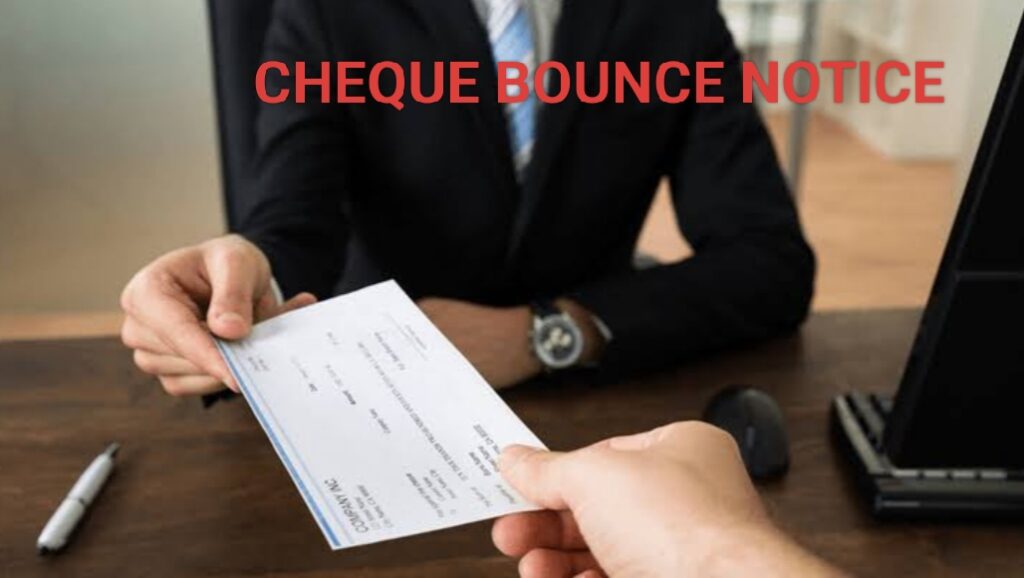A cheque bounce notice is a crucial legal document issued under Section 138 of the Negotiable Instruments Act, 1881, when a cheque issued for payment is dishonoured due to insufficient funds or other reasons. This notice serves as the formal intimation to the cheque issuer (drawer), demanding payment of the cheque amount within the legally stipulated period.
To ensure the notice is valid and actionable under law, certain vital information must be included. Here’s a detailed guide on what to include in a cheque bounce notice and why each element matters.
Essential Information Required in a Cheque Bounce Notice
1. Drawer and Payee Details
- Full Name and Address of the Drawer: This refers to the individual or entity who issued the cheque.
- Full Name and Address of the Payee: The person or party to whom the cheque was issued.
Accurate identification helps establish the relationship and context of the transaction.
2. Cheque Details
- Cheque Number: A unique identifier that helps track the specific cheque involved.
- Date of Issue: Important for calculating the statutory time limits.
- Cheque Amount: Clearly state the exact amount mentioned on the cheque.
- Bank Name and Branch: Include the name and branch of the bank where the cheque was presented for clearance.
These details establish the financial instrument in question.
3. Reason for Dishonor
Clearly mention the reason why the cheque was dishonoured, as stated in the bank’s return memo—common reasons include:
- Insufficient funds
- Account closed
- Signature mismatch
- Payment stopped by drawer
This reinforces the basis for legal action under Section 138.
4. Demand for Payment
As per legal requirements, the notice must:
- Clearly demand the cheque amount.
- Specify that the payment should be made within 15 days from the date of receipt of the notice.
This period is mandatory and forms the basis for further legal proceedings if ignored.
5. Legal Reference
The notice must explicitly mention Section 138 of the Negotiable Instruments Act, notifying the drawer that failure to comply could lead to legal consequences, including imprisonment or fine.
Recommended Additional Information for a Comprehensive Notice
1. Sender’s Contact Information
Include your:
- Full name
- Address
- Contact number(s)
This allows the drawer to contact you and settle the matter amicably if desired.
2. Date of the Notice
Always include the date on which the notice is being issued. This helps establish timelines for any potential legal action.
3. Subject Line
A clear subject such as “Notice of Dishonor of Cheque under Section 138 of the N.I. Act” adds to the professional and legal tone of the document.
4. Potential Legal Consequences
Mention the potential outcomes of non-payment, such as:
- Filing of a criminal complaint under Section 138
- Possible imprisonment up to 2 years or fine up to twice the cheque amount
This section reinforces the seriousness of the issue and may prompt quicker resolution.
Conclusion
Issuing a well-drafted cheque bounce notice is the first legal step toward recovering your dues in case of dishonoured cheques. Ensuring that your notice complies with the statutory format under Section 138 of the Negotiable Instruments Act is essential for initiating any future legal proceedings. It is always advisable to consult a legal professional to ensure that the notice is properly structured and enforceable.

